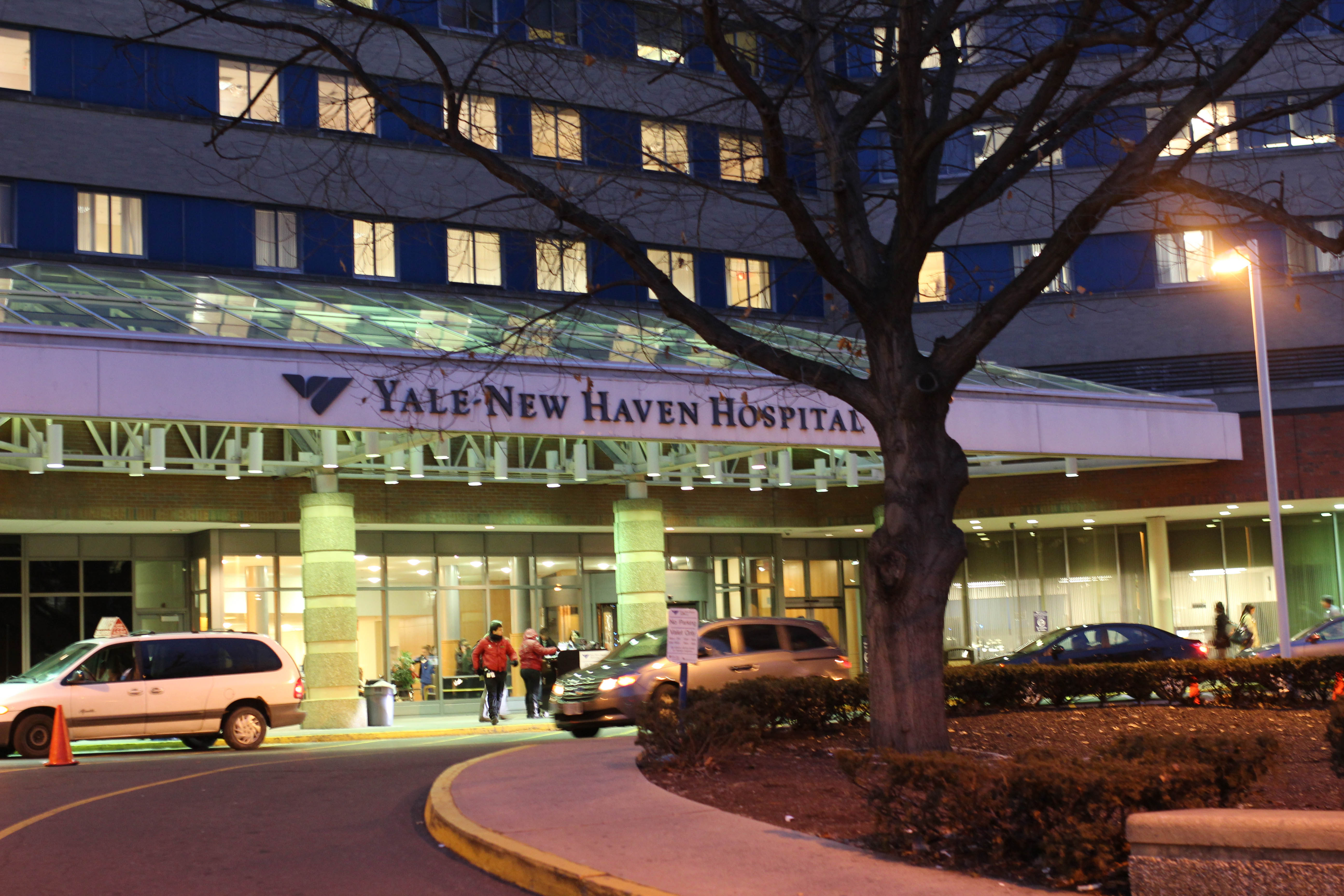
The University faces a lawsuit seeking over $15,000 in damages after Milford resident Deborah Craven filed a legal complaint on March 14 in the Connecticut Superior Court against the Yale School of Medicine and Yale-New Haven Hospital for a botched surgery. Anthony Kim and Ricardo Quarrie, the Yale cardiothoracic surgeon and surgeon-in-training who directed the procedures, are also included as defendants in the suit.
In May 2015, Kim and Quarrie performed a procedure to remove a precancerous lesion from Craven’s eighth rib at Yale-New Haven Hospital. Although the eighth rib was marked with a metal coil and dye, the doctors mistakenly removed part of Craven’s seventh rib, leading to severe back pain caused by the coil rubbing against the musculature of her back. After the mistake became apparent, Craven, 60, had to undergo a second surgery the following day. The lawsuit alleges that Quarrie — who at the time was completing his medical residency in Yale-New Haven — tried to cover up the surgical mishap by telling Craven that he had not removed enough of her eighth rib.
“The fact that the surgical team operated on the wrong rib despite a clear indication of the proper site is, of course, negligent,” said Craven’s attorney, Joel Faxon of Faxon Law Group in New Haven.
Craven claimed that the cover-up had taken place among the medical staff at Yale-New Haven Hospital. Although Kim, the lead surgeon, admitted to Craven that a mistake had occurred, Quarrie misinformed Craven of the reason for a second surgery, telling her that not enough of her rib had been removed.
Additionally, according to the complaint, Craven’s husband requested that only Kim be involved in the second surgery because he did not believe Quarrie was trustworthy after the initial mistake. However, medical records obtained by Craven’s legal team show Quarrie was indeed involved in the second surgery. Faxon said that even though Craven herself is a health care worker, her anger at this “abuse” led Craven to seek legal action with Faxon in the fall of last year.
“She’s gotten to the point where there’s only so much you can take,” Faxon said. “Had they come to her before and said, ‘Look we made a mistake, we want to fix the mistake, here’s what happened, everything is going to be alright’ — if that had occurred at Yale, this never would have resulted in a lawsuit. Only the deceit, cover up and lying after the fact in addition to that, that made her blood boil to the point where she said ‘Something has to be done here.’”
This lack of candor led to the additional lawsuit allegation of unfair trade practice — the use of deceptive, fraudulent or unethical methods to obtain business, which Faxon said is very rare. Faxon added that of the thousands of cases he has handled, he can recall only two that involved an unfair trade practices allegation.
Mark D’Antonio, Yale-New Haven Hospital media coordinator, released a statement defending the hospital’s practices and disputing Craven’s claims, arguing that Craven was made aware of the mistake at the time it occurred.
“Yale-New Haven Hospital and Yale Medical Group are committed to providing the safest and highest quality of care possible,” the statement said. “With respect to the case of Ms. Craven, we recognized that an error was made, we informed and apologized to the patient, and we immediately reported it to the Connecticut Department of Public Health.”
D’Antonio declined to comment further on the case.
As a result of state law, before filing a lawsuit, Craven and Faxon had to have the case reviewed by a board-certified physician who specializes in the same field as the accused, Faxon said. That surgeon, who is not identified for legal reasons, provided Craven and Faxon with a certificate of good faith affirming the legitimacy of the lawsuit.
The surgeon said the care Craven received “deviated from appropriate standards,” noting that Craven’s doctors should have done more to ensure that the surgery was properly executed.
“Dr. Kim and his resident/fellow, Dr. Ricardo Quarrie, failed to meet the standard of care expected of a thoracic surgeon in operating on the wrong rib because he failed to confirm the correct rib intraoperatively with an X-ray or fluoroscopy,” the anonymous surgeon said.
An intraoperative fluoroscopy — an imaging technique that uses X-rays to obtain moving images — is an appropriate technique commonly used in operations that would have revealed to doctors that the metal coil was still in Craven’s eighth rib. However, the radiology equipment at Yale-New Haven, which would have been used to perform the fluoroscopy, was “broken or busted or defective,” Faxon said. He added that this was not disclosed to Craven at the time of her surgery.
Yale-New Haven Hospital’s statement acknowledged that mistakes in a medical organization are inevitable.
“Even in the best organizations medical errors may occur,” the statement said. “When they do, our goal is to acknowledge them, learn from them and ensure that we minimize any chance that they ever occur again.”
Neither Kim nor Quarrie, who remain affiliated with the University, could be reached for comment.
Craven’s lawsuit will most likely be settled outside of court or go to trial in about two years, Faxon said. He added that the vast majority of cases handled by his firm are settled outside of court rather than by a jury or by arbitration.
The next step in the case involves Faxon’s collecting depositions, which may include testimony or documentation, from Kim, Quarrie, an administrative representative of the hospital and possibly others involved in Craven’s medical treatment.
Yale-New Haven Hospital was founded in 1826.







